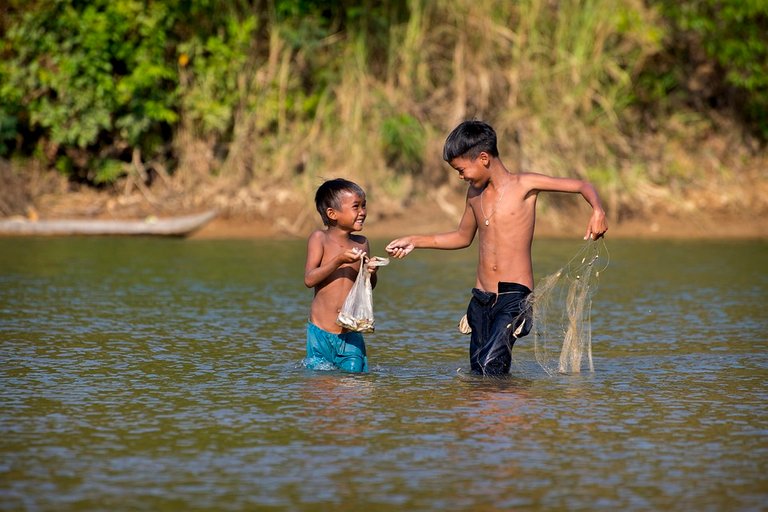We literally beat the dirt out of our clothes.
When the Dirty Laundry Was not Washed at Home
“Dirty laundry must be washed at home,” they say now. The fact is that for most of us, living in rural areas, with no piped water, and having a river nearby, doing the laundry in public was a matter of course. Maybe that had some impact in the way my people handled gossiping and passed that on to other generations.
We had two rivers that merged right where my barrio started. Some people did their laundry up either body of water; one was cleaner than the other. We did ours in the confluence of both. There were plenty of big rocks ideal for all the twisting and slapping that was needed to literally beat the dirt out of our clothes.
The whole riverbank became a big free laundromat. Laundry day could be any day when you were eight or ten in your family. That was the average household composition in those days.
You had to get up when it was still dark and get to the river before the water started to get murky. “The early bird gets clear water,” I guess the saying would go. I was little but you were never too young to help with house chores and laundry day was about the most fun chore there was. If you did your part efficiently, there was always time to do some hand fishing or just swim and play river games.
Then, we got the pipelines and every house had plenty of water. Then, came the washing machines and all the fun was gone. Many women refused to submit to the machines. They said those chaca-chacas (a term derived from the onomatopoeia of the sound produced by the washing machines) destroyed the clothes. Nothing like doing the laundry by hand. Doing it in public did evolved into the slang and it got reserved for emergencies only. Airing the dirtiest laundry became the best way to win any argument.
Thanks for your reading
This was my entry to @mariannewest and @latino.romano’s 5-Minute Daily Freewrite: Friday Prompt: LAUNDRY DAY. You can see the details here.
Make sure you visit the Freewrite House!!!




